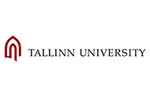We're moving! This site will be relocating to goingto.university in 2026. Please update your bookmarks to the new address.


| The award | How you will study | Study duration | Course start | Domestic course fees | International course fees |
|---|---|---|---|---|---|
| MSc | Full-time | 2 years | - | EUR 1250 per semester | EUR 1250 per semester |
Digital Learning Games (DLG) is a 2 years international master’s curriculum in the Tallinn University School of Digital Technologies. The main objective is to bring together people with different background, form heterogeneous teams, learn from experts and from each other, and make games.
This curriculum is unique because of its interdisciplinary nature. It integrates wisdom from the following domains:
Classes take place on working days in the evenings, starting at 4 o'clock in the afternoon. Average school day duration is 4 hours.
DLG is divided into following main modules:
Subjects
Game Design is a main module of DLG. It covers game design related subjects like:
All subjects combine theory and practice of game design. The outcomes of the courses are design documents, prototypes and smaller games. Games in the bigger scale (bigger teams, more functionalities, comprehensive research) are created during Interdisciplinary (ELU) project and master thesis.
Tallinn University has a Virtual Reality (VR) and Game Lab. In this lab students can experiment with existing VR and computer games and try VR hardware such as Oculus Rift, HTC Vive or Samsung Gear VR. Game design and development teams are also welcome to use lab equipment for making and testing their games.
Tuition fee: 1250€ per semester.
Contact Tallinn University to find course entry requirements.
Below are some suggested courses at other providers that you may also be interested in:
Master in AI Powered Design for Digital Experience Master Degree
IAAD. - Institute of Applied Art and Design
Find out moreEconomics of Sustainability Master
Erasmus School of Economics, Erasmus University Rotterdam
Find out moreTechnology, Media and Telecommunications Law Online LLM, LLM, LLM, LLM
Centre for Commercial Law Studies, Queen Mary University of London
Find out moreMarketing Management - Digital Business Concepts Bachelor Degree
Fontys Economy Tilburg
Find out moreIf you do not meet the entry requirements for this course then consider one of these postgraduate preparation courses from another institution:
Graduate Diploma of Engineering (Electrical Systems)
Engineering Institute of Technology
Find out moreThere are 14 other courses listed from Tallinn University. A selection of these are displayed below:
Join the StudyLink email list and never miss a chance to turn your study abroad dreams into reality!
